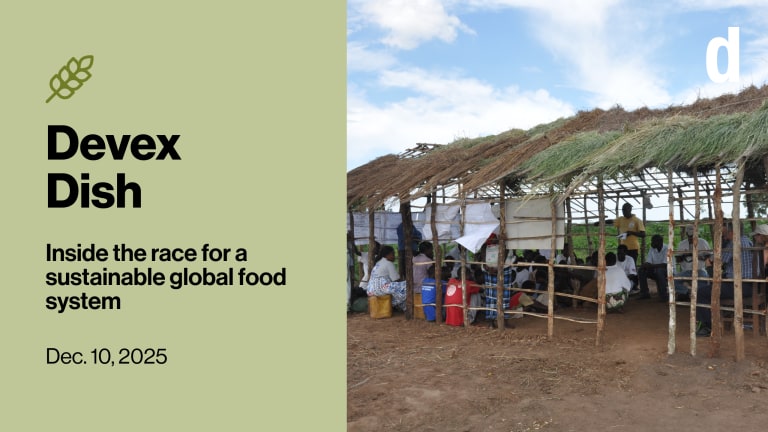
Former United Kingdom International Development Secretary Rory Stewart will step in as GiveDirectly’s new president and CEO, the organization announced early Monday. Stewart will replace co-founder Michael Faye, who will transition to the role of executive chair.
GiveDirectly provides cash transfers to impoverished people around the world, and its model is gaining steam among individual and government donors. Stewart visited the nonprofit’s operations in Rwanda earlier this year and recently described himself as an “apostle” for the cash transfer model.
“I’ve never seen anything like it in 30 years working on international development. Literally, I saw villages which a year ago were some of the poorest communities in the world and a year later they’ve gone from a quarter of people owning a cow to nearly three quarters of them,” he said in April during a podcast he co-hosts with Alistair Campell, the former communications director for ex-U.K. Prime Minister Tony Blair.
GiveDirectly is also a favorite among ultra wealthy funders such as MacKenzie Scott, crypto billionaire Sam Bankman-Fried, and former Twitter CEO Jack Dorsey — all of whom have donated to or partnered with the organization in the past two years. Thanks to support from them and others, GiveDirectly has seen its donations spike from $42 million in 2019 to $303 million in 2020. GiveDirectly has described itself as “the fastest-growing nonprofit in the world in 2020.”
The organization said it is near raising $1 billion in donations and wants to scale up its operations. Stewart will lead the next phase for the organization, which will include using “their proven model” to offer “a route to eradicating extreme poverty in entire regions and countries,” according to a press release.
That phase will include launching “ambitious” projects in Malawi and Liberia as part of a scale-up to contribute to the United Nations sustainable development goal of eradicating extreme poverty worldwide by 2030, GiveDirectly said.
Cash transfers were considered “experimental or even crazy” when GiveDirectly started a decade ago with the goal of shifting more resources and power to the poor and improving the effectiveness of the traditional sector, Faye said in a statement.
“Now, over 180 governments implemented cash programs during COVID-19 alone; the U.N. Secretary-General has called for ‘cash to be the default’ and GiveDirectly alone has reached over a million people, developing new technologies for targeting and delivery in the process,” he said.
“We’re proud of how far we’ve come, but keenly aware of how far there is to go. With 711 [million] people left in extreme poverty, and the number increasing for the first time in two decades, there’s much left to do,” he added.
He said that the addition of Stewart with his experience overseeing the U.K.’s international development aid budget made GiveDirectly’s ambition seem “a bit more realistic.”
Many in the aid community considered Stewart to be one of the most qualified ministers to serve in the role at the Department for International Development when he was appointed in 2019. Prior to the appointment, he was a minister of state at DFID and as well as a joint minister for DFID and the Foreign & Commonwealth Office.
Stewart rose to fame when he wrote “The Places in Between,” a 2002 book that describes his walk across Afghanistan, Iran, Pakistan, India, and Nepal while on leave from the foreign service. He was also director of the Carr Center for Human Rights Policy at Harvard’s Kennedy School and advised former U.S. Secretary of State Hilary Clinton on Afghanistan.
In recent months, Stewart has been very vocal in his support for cash transfer programs, tweeting in March “it allows families to choose what they most need - from food to clothing and shelter.”
Stewart said in a statement Monday that he was excited to become GiveDirectly’s president “at a time when climate change and the pandemic make global poverty more urgent than ever.”
In addition to its popularity with high-profile donors, GiveDirectly has generally been well-regarded among those who identify as “effective altruists,” meaning they seek evidence showing how their giving can have the most impact per dollar spent.
However, it was recently removed from the list of top-rated charities by GiveWell, a highly influential charity rater among effective altruists. GiveWell evaluates the cost-effectiveness of charities by comparing their interventions against a baseline of giving cash.
It added new criteria this month requiring programs to have “funding gaps that meet our current cost-effectiveness bar” of being 10 times as cost-effective as providing cash directly and said that GiveDirectly no longer met that criteria. That means GiveWell will no longer recommend GiveDirectly for future giving, which was not a huge change since GiveWell said it had not directed any “marginal funding” to GiveDirectly since 2015.
GiveWell said it still considers GiveDirectly to be an “outstanding program.” And GiveDirectly responded that the two organizations “share the goal of improving sector effectiveness and simply differ in strategy.”
“We have an intervention that is scalable, the evidence that it works, and the resources required to improve hundreds of millions of lives. Let’s take the opportunity,” GiveDirectly said.








